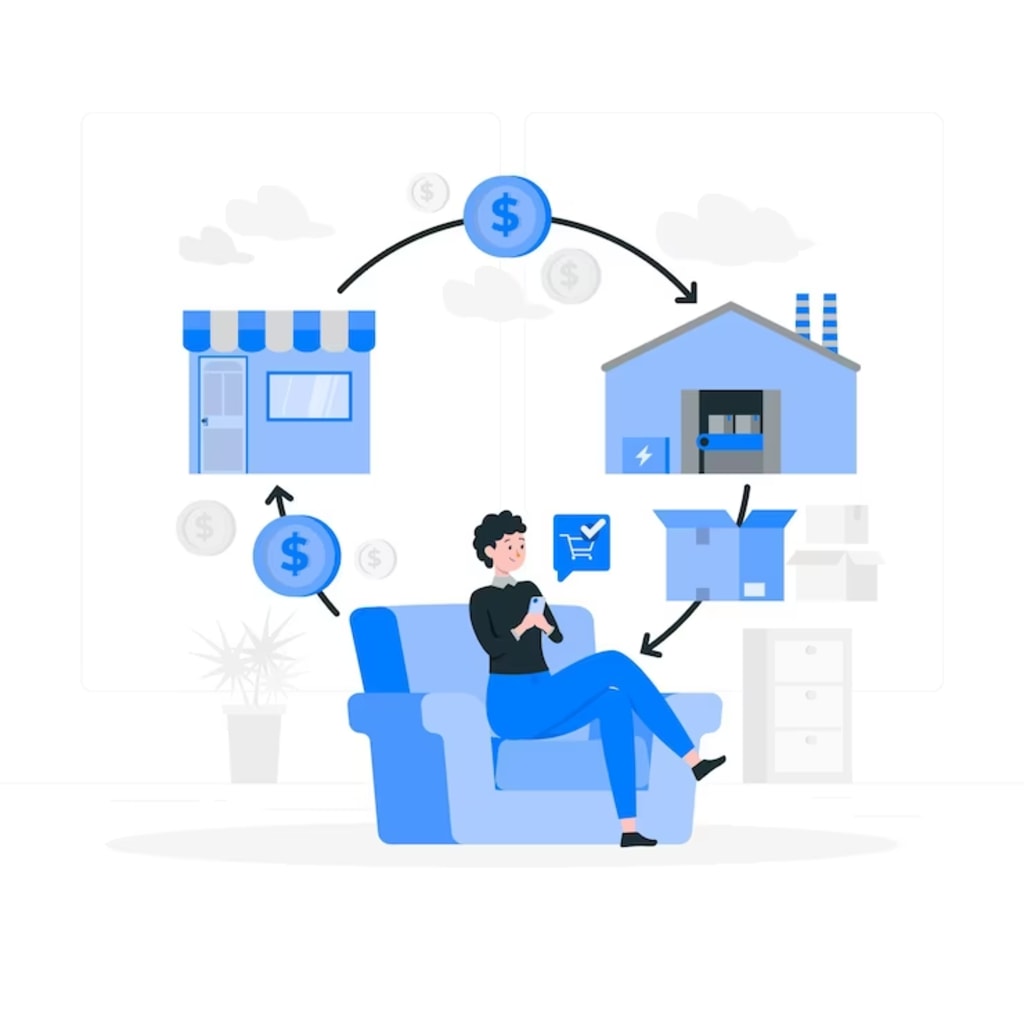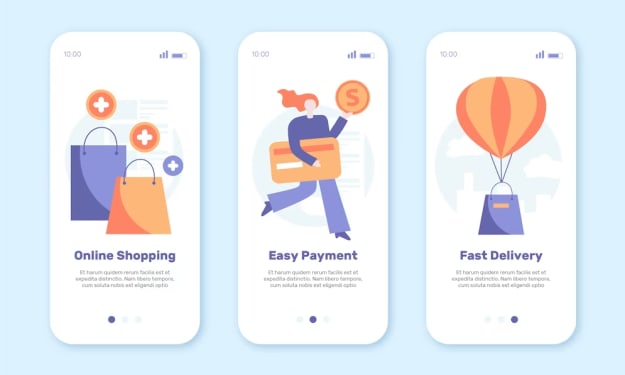The tremendous spread of hyperlocal ecommerce- Across a range of businesses and deep into households
Hyperlocal ecommerce has grown tremendously in the previous few years

“Hyperlocal ecommerce has been disruptive to the extent that it has left neither businesses nor the customers spared from its colossal impact.”
Introduction
We all deem hyperlocal ecommerce to be extremely disruptive. It has uprooted the traditional business practices and has led to an overwhelming refinement of logistics and supply chain. This has made businesses pretty ‘enabling’. Where on one hand hyperlocal ecommerce has enabled businesses to adopt a different perspective about how business operations can be effectively run, on the other hand, it has enabled them to manage and administer their logistics and supply chain in a way that it leads to overall business efficiency.
Behind all this growth and enabling exercise businesses have had in the last few years, there lies the crucial and central role of hyperlocal ecommerce delivery software and apps. Also known as on-demand delivery apps, they have been instrumental in uplifting businesses across a range of industries and have appealed to the masses on a wide scale.
Hyperlocal ecommerce- An overview
Hyperlocal ecommerce, by virtue of its rapid spread has caught everybody’s attention. If the last few years of the online buying and selling process are to be traced, hyperlocal ecommerce and on-demand delivery would certainly be the primary and fundamental ingredients of it. This is because that the modern world of online buying and selling is getting heavily dominated by hyperlocal ecommerce.
Hyperlocal ecommerce deliveries witnessed a massive acceleration after the world was hit by the covid19 pandemic. Isolated, quarantined and sent to the confines of their homes, customers were left with no options to move out, yet the need to have those essential utility things existed. This paved way for prudent businesses to go hyperlocal and hyperlocal deliveries made way into the business world more prominently.
How do hyperlocal businesses operate?
The hyperlocal businesses work with the pre-existing infrastructure and elements of local markets but connect them all in an ecosystem where orders can be taken, processed, procured and eventually delivered, all in one place. It operates with the help of offering and delivery partners to bridge the gap between customer demands and retail supplies.
Businesses operating under the hyperlocal business model provide online retail platforms to local consumers and businesses. They usually have an inventory database where all the information is stored about the products, services, customers and locations. They also have an ordering platform through which the customers can order products and services.
To understand it better, let us consider an example of a hyperlocal on-demand food platform. When a customer places an order for a required food item through the platform, the platform receives that order and passes on the details to the offering partner (local store) and the delivery partner (delivery person). The delivery partner then procures the required food item from the local business and delivers it to the customer’s specified location. The platform drives the entire process and earns a commission for the role it plays and the local stores get amplified visibility and delivery services in the process.
Businesses and industries where hyperlocal ecommerce is spreading like wildfire
Hyperlocal ecommerce has had a vigorous proliferation in the recent past. It has not just remained limited to food industry, but it has spread across grocery delivery, pharmaceuticals, household products, home essential supplies, laundry services, and what not.
This is an established fact that the modern consumer has been quick to change tracks, by moving to hyperlocal delivery platforms to fulfill their requirements. The adaption of the hyperlocal model in our daily lives and it becoming a business reality is clearly evidenced in its demand in the grocery space, always considered to be the toughest segment to penetrate within the online commerce bandwagon.
Besides fulfilling demands for groceries, hyperlocal delivery fruits, vegetables, food, meals, medicines, gift items, etc., has accelerated with the introduction of multiple online hyperlocal stores, e-commerce platforms and other delivery-based start-ups who have forged partnerships with the local kirana or neighbourhood stores and supermarkets. The role of hyperlocal ecommerce delivery software has been pretty central and instrumental in shaping hyperlocal ecommerce of recent years. They have certainly uplifted businesses across a range of industries.
Hyperlocal ecommerce has also helped in a way that many of the kirana stores are now managed by a newer generation which is willing to embrace technology in their daily lives. The in-store experience has now transitioned to an in-hand shopping experience through intuitive mobile apps, thereby paving way for more consumers to lay their hands on products belonging to varieties of businesses viz a viz food, grocery, medicines, stationary, gift items, home essential supplies, home utility services, etc. Certain home utility services that have picked up significant pace are home cleaning services, home remolding, roofing, lawn care, personal care, electrical and appliance repair in several developed countries. These on-demand delivery services are in huge demand owing to consumers’ having lack of time and absence of domestic help.
Hyperlocal ecommerce has traversed a long journey making way into households through the delivery of every product and service that can reach the consumer households in quick time offering them the much-needed convenience. As is the growing trend for hyperlocal deliveries, times ahead are certainly promising for businesses, regardless of the industry they are in.
The growing fascination for hyperlocal deliveries
Consumers of today have been taken away by the splendidness of hyperlocal ecommerce delivery software offering just immaculate hyperlocal delivery solutions- instantly, economically and conveniently. Yes! They have become increasingly ravenous for hyperlocal deliveries.
Though there are a number of reasons for the growing fascination of hyperlocal deliveries yet there have been a few of them that have just pushed the contemporary consumers into the hyperlocal space. Higher rate of technological adoption, growing internet penetration, busy schedules, rising want for sedentary lifestyles and habits and the perk of having the delivery at your doorstep with the blink of an eye has just forced the modern consumers to go for more and more hyperlocal deliveries.
It is perhaps such growing needs of consumers that has businesses getting in touch with them, and penetrating households. Attribute it to the rapidly growing technology or the sudden outbreak of the pandemic, hyperlocal deliveries have struck all the right chords with the modern-day consumers and they have just become the order of the day.
Wrapping up
With technology at the helm of all business affairs and with the facilitation of hyperlocal ecommerce, the contemporary consumers have become pretty habitual of hyperlocal deliveries. They are not just seeking hyperlocal deliveries of luscious food and meals, but are also wanting on-demand delivery solutions for grocery delivery, medicines, home essential supplies, laundry services, and the associated services that are deemed to be hyperlocal.
Now, with the coming into being of more automated mechanisms and digitalization for businesses, they are bound to get more efficient with their ways of delivering the products and services, which means, more of hyperlocal ecommerce will take place. This can be supplemented by the modern-day technology as that of blockchain, artificial intelligence, robotics and drone deliveries. If all or any of these technologies get incorporated into the business, this goes without saying, that hyperlocal ecommerce will witness a more tremendous spread across a range of businesses and deep into the modern-day households.
A lot of this technological incorporation and hyperlocal progress also depends upon the level of effort put in by the hyperlocal ecommerce delivery software partners, which have been the backbone of the hyperlocal industry till now. Only time will tell how much more significant will hyperlocal ecommerce and on-demand deliveries become.
About the Creator
Dr. Shamael Zaheer Khan
Dr. S.Z. Khan is a revered academic. He brings a unique blend of theory and practice to his position as Vice President (Marketing & Strategy) at a leading SaaS firm. He is also an expert contributor to several platforms of repute.






Comments
There are no comments for this story
Be the first to respond and start the conversation.